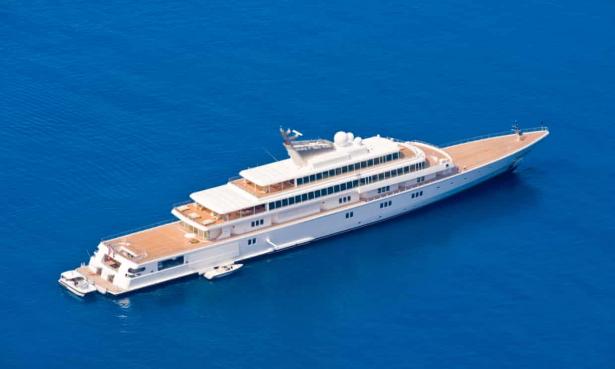In this pandemic, we are unfortunately not in the same boat.
Most Americans don’t even have a canoe. But some billionaires have taken to the high seas in their yachts – literally – to ride out the pandemic. While ordinary workers get furloughed or laid off in record numbers, billionaires as a group are actually seeing their wealth increase.
Between 18 March and 10 April 2020, over 22 million Americans lost their jobs. Over the same three weeks, my co-authors and I find in a new study for the Institute for Policy Studies, US billionaire wealth increased by $282bn – an almost 10% gain.
Indeed, we’re seeing distinct socio-economic fault lines between who is vulnerable and who is protected – between those with healthcare and those without, those who rely on public transit and those with private jets, and those who work on the frontlines and those who telecommute from comfortable homes (or yachts).
Many billionaires, enjoying the luxury of owning multiple properties far from population centers, are riding out the pandemic in havens for the wealthy such as Jackson Hole, Palm Beach, Hilton Head Island and Sun Valley. Reporters describe private jets clogging the small airports on Nantucket and Martha’s Vineyard, while gourmet food stores in the Hamptons have been cleared out by the itinerant rich.
Some small seasonal vacation communities, lacking the hospital beds or doctors to care for throngs of sick people, have had to beg affluent visitors to go home. The state of New Jersey even enlisted the Jersey Shore star Mike “The Situation” Sorrentino to implore people to stay away.
As the wealthy luxuriate in high-end vacation towns, new Covid-19 hotspots are springing up in working-class and immigrant gateway neighborhoods like Chelsea, Massachusetts, and New York City’s outer boroughs, where people live and work in higher-density spaces, and where social-distancing guidelines are more difficult to implement – especially for frontline workers without sick leave.
While some essential workers brave the pandemic without paid sick leave, millions of others have lost their health insurance after being laid off. But that’s no worry for the wealthiest Americans, who have access to “concierge medicine” – where, in exchange for hefty annual fees, they have ready access to Covid-19 testing and treatment. At an exclusive residence on Fisher Island, Florida, even the hired help has gotten the medical testing and screening that the rest of the country is waiting for.
The wealthy are not only “social distancing”, in short – they are also “economically distancing”. For decades now, they’ve been disconnecting from the rest of society and taking their treasure with them, undermining our public institutions as well as social solidarity.
Decades of tax cuts and billionaire-friendly public policies, our report found, helped US billionaire wealth soar over 1,100% between 1990 and 2018. Yet their tax obligations, as a percentage of their wealth, decreased a staggering 79% between 1980 and 2018.
The billionaires may not have caused this pandemic. But extreme inequality and poverty are pre-existing conditions in this public health emergency. Not least, all that uncollected tax revenue could have funded a much more responsive public health system.
There are inspiring examples of social solidarity across the country, including meaningful offers of money and help from those with abundance. But the level of sacrifice being demanded from working-class Americans is truly medieval.
The first step in reversing these extreme inequalities? Stop pretending we’re in the same boat.
Chuck Collins directs the program on inequality at the Institute for Policy Studies. He is a co-author of the IPS report Billionaire Bonanza 2020: Wealth Windfalls, Tumbling Taxes, and Pandemic Profiteers


Spread the word